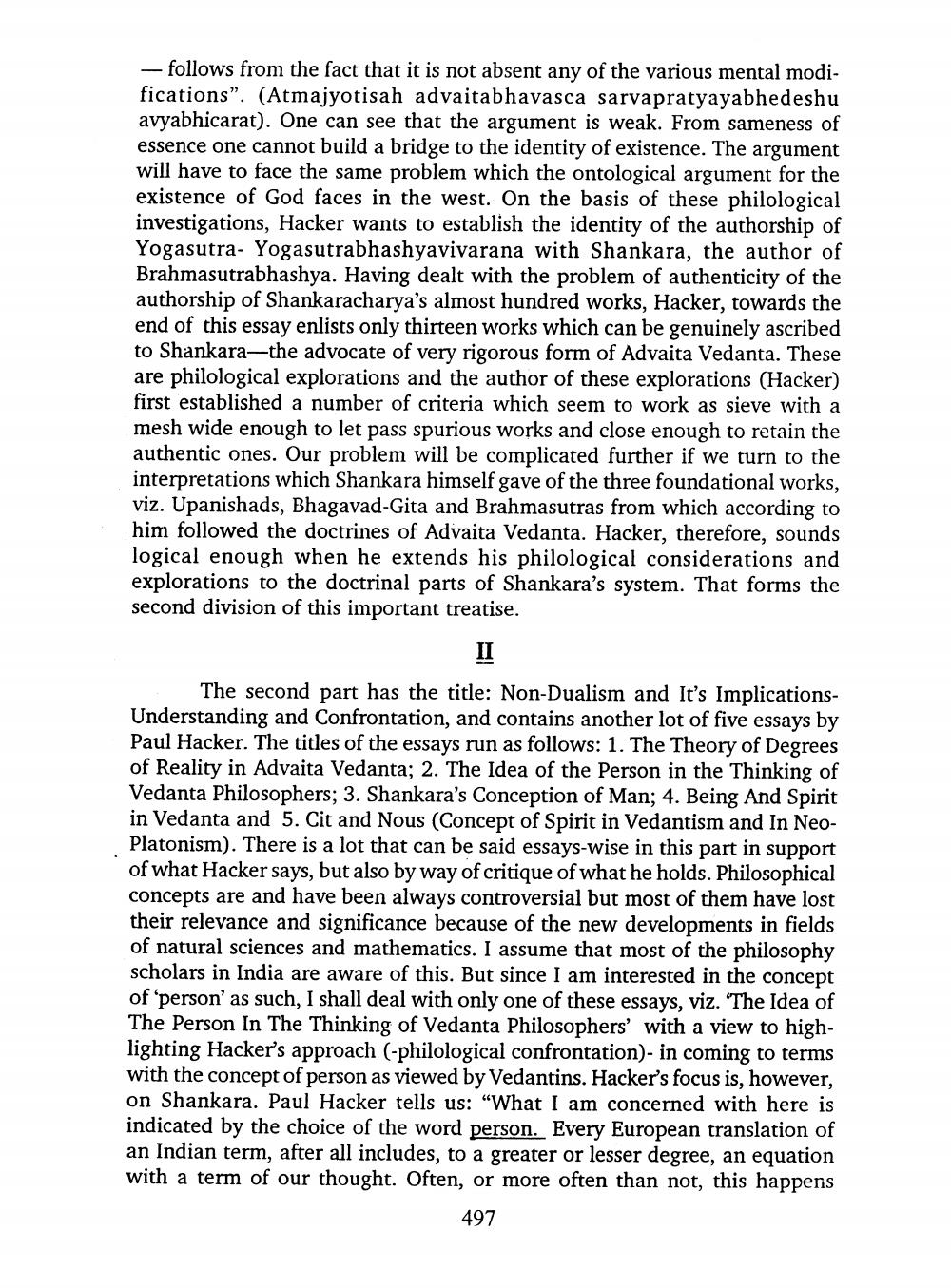________________
follows from the fact that it is not absent any of the various mental modifications". (Atmajyotisah advaitabhavasca sarvapratyayabhedeshu avyabhicarat). One can see that the argument is weak. From sameness of essence one cannot build a bridge to the identity of existence. The argument will have to face the same problem which the ontological argument for the existence of God faces in the west. On the basis of these philological investigations, Hacker wants to establish the identity of the authorship of Yogasutra- Yogasutrabhashyavivarana with Shankara, the author of Brahmasutrabhashya. Having dealt with the problem of authenticity of the authorship of Shankaracharya's almost hundred works, Hacker, towards the end of this essay enlists only thirteen works which can be genuinely ascribed to Shankara-the advocate of very rigorous form of Advaita Vedanta. These are philological explorations and the author of these explorations (Hacker) first established a number of criteria which seem to work as sieve with a mesh wide enough to let pass spurious works and close enough to retain the authentic ones. Our problem will be complicated further if we turn to the interpretations which Shankara himself gave of the three foundational works, viz. Upanishads, Bhagavad-Gita and Brahmasutras from which according to him followed the doctrines of Advaita Vedanta. Hacker, therefore, sounds logical enough when he extends his philological considerations and explorations to the doctrinal parts of Shankara's system. That forms the second division of this important treatise.
II
The second part has the title: Non-Dualism and It's ImplicationsUnderstanding and Confrontation, and contains another lot of five essays by Paul Hacker. The titles of the essays run as follows: 1. The Theory of Degrees of Reality in Advaita Vedanta; 2. The Idea of the Person in the Thinking of Vedanta Philosophers; 3. Shankara's Conception of Man; 4. Being And Spirit in Vedanta and 5. Cit and Nous (Concept of Spirit in Vedantism and In NeoPlatonism). There is a lot that can be said essays-wise in this part in support of what Hacker says, but also by way of critique of what he holds. Philosophical concepts are and have been always controversial but most of them have lost their relevance and significance because of the new developments in fields of natural sciences and mathematics. I assume that most of the philosophy scholars in India are aware of this. But since I am interested in the concept of 'person' as such, I shall deal with only one of these essays, viz. "The Idea of The Person In The Thinking of Vedanta Philosophers' with a view to highlighting Hacker's approach (-philological confrontation)- in coming to terms with the concept of person as viewed by Vedantins. Hacker's focus is, however, on Shankara. Paul Hacker tells us: "What I am concerned with here is indicated by the choice of the word person. Every European translation of an Indian term, after all includes, to a greater or lesser degree, an equation with a term of our thought. Often, or more often than not, this happens
497




